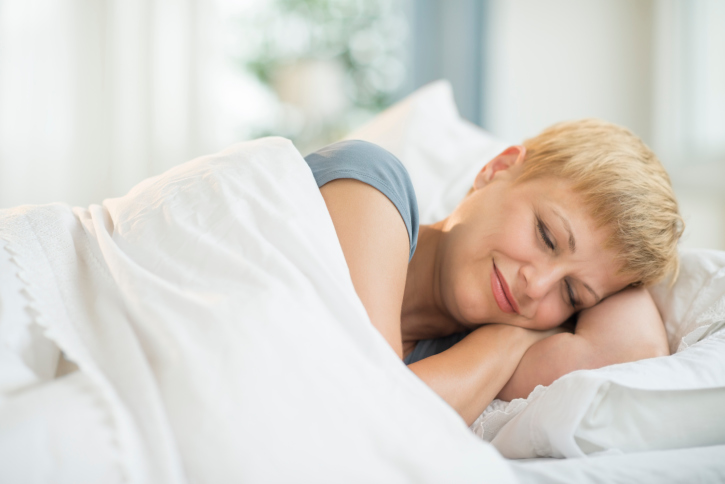 If you’ve been struggling to get a good night’s sleep, you’re likely at the point where you’d try anything to get a full eight hours. Well, according to a new study from a team of Swiss researchers, a short hypnosis session may just be the cure for your insomnia.
If you’ve been struggling to get a good night’s sleep, you’re likely at the point where you’d try anything to get a full eight hours. Well, according to a new study from a team of Swiss researchers, a short hypnosis session may just be the cure for your insomnia.
For those women who received hypnosis, the study found that they were two-thirds more likely to spend less time awake and 80% more time in deep sleep than those who did not receive any hypnotic suggestion.
In the past, there have been reports that hypnosis benefits individuals suffering from sleep issues but up until now, this has been strictly subjective. The study from the University of Fribourg in Switzerland is the first to take a serious look at the benefits that hypnosis has on deep sleep and if the connection between hypnosis and better sleep is, in fact, real.
Hypnosis is meant to boost deep sleep, or slow-wave sleep, as it is often known. This is the type of sleep that the body needs to rejuvenate. As humans age, the amount of deep sleep they get each night typically drops. By the time some people hit the ages of 50 or 60, they may get little to no sleep. Not getting quality, rejuvenating sleep is a common complaint among seniors.
The Swiss study enlisted 70 healthy women between the ages of 18 and 35 in a series of experiments in a lab once a week for five weeks. None of the women had a history of sleep issues, nor were they taking any sleep medications. They were divided into two groups; one that was deemed susceptible to hypnosis while the other was not.
The women were outfitted with electrodes to monitor brainwaves and sleep patterns. While lying in bed in a dark room, half the group listened to audiotapes that contained hypnotic suggestion, while the other half listened to content that was neutral.
While listening to the audio feeds, the women were allowed to fall asleep during or after listening to the audio files and all the participants were woken after 90 minutes of napping.
Sleep patterns did not change in those with low suggestibility to hypnosis. However, the women who were highly suggestive slept 67% more and their deep sleep time rose by 80%. While other phases of sleep did not appear to be have been affected by sleep patterns, the study did find that slow-wave activity during deep sleep was improved significantly. This shows that not only is the quantity of deep sleep improved, but the quality is as well.
The researchers did acknowledge that the study only looked at women, but there is evidence that men, in general, are less suggestible to hypnosis. However, men who are suggestible to hypnosis may benefit from hypnosis for improved sleep as well.
With roughly half the population being suggestible to hypnosis, there is evidence that it could be used to improve sleep patterns of those who are struggling. The study did look at healthy people who were not suffering from sleep disorders but with the information they gathered, there is evidence that they could benefit from hypnosis when combined with sleep medications.
Source for Today’s Article:
“Hypnosis May Help Improve Deep Sleep,” Medline Plus web site, June 20, 2014; http://www.nlm.nih.gov/medlineplus/news/fullstory_146901.html.
